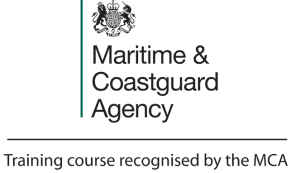Featuring Guest Lecture From Richard North
Richard North is responsible for the recovery and analysis of any type of marine electronic equipment and its associated data, gathered as evidence relating to marine accidents for the UK’s Marine Accident Investigation Branch (MAIB).
During the course, Richard gives a short but highly valuable presentation, sharing his extensive experience and knowledge of maritime incidents and the best practices.
Course Description
The course consists of lectures, discussions (both instructor and student-led), simulator scenarios and team building exercises designed to promote, practice and reinforce safe navigational watchkeeping practices through the application of effective bridge teamwork, bridge resource management principles and the use of leadership and managerial skills for the safety of life and property at sea and the prevention of pollution to the marine environment.
Course Objectives
The intent of the course is to ensure trainees gain experience in handling ships under various conditions and will make a more effective contribution to the bridge team during ship manoeuvring and emergency situations. In particular, trainees should be:
- Aware of the need for and be able to prepare a detailed voyage plan from berth to berth.
- Able to make best use of all relevant information and resources when executing and monitoring a planned passage including the use of ships manoeuvring data to carry out standard manoeuvres and assessment of the effects of wind and tidal forces that may be encountered and the application of effective countermeasures.
- Able to communicate effectively with other members of a bridge team.
- Aware of the necessity of carrying out a risk assessment for each stage of the voyage, with particular regard to passages in confined waters.
- Able to implement effective appropriate crisis management procedures and initiate appropriate responses to emergencies.
- Able to organise and conduct a bridge team effectively, with particular regard to the importance of briefing and de-briefing and factors such as attitude, cultural differences, workload and stress, human factors in error chains, decision making and challenge and response.
Course Topics
- Watchkeeping Principles
- Simulator Introduction
- Bridge Team Control and Communication
- Human Factors
- Crisis Management
- Case Studies
- Team Work
- Voyage Planning
- Working with a Pilot
- Search and Rescue
In addition to the above topics there will also be multiple simulator scenarios to consolidate the lessons and exercise students’ ability to put the classroom theory into practice.
Teaching Methods:
All of our trainers are experienced mariners that are highly experienced in the practical use of leadership, management and ECDIS having pushed themselves to their limits at sea. Our Instructors will be drawing on experiences gained at sea to highlight important factors and to demonstrate effective processes in the classroom, then allowing for the processes to be developed in the Simulator. Candidates will at times be put under pressure within the controlled environment to utilise their newly developed skills.
Call us today for more details on +44 (0) 1489 559 677
SPACES EVERY WEEK – Call us on +44 (0) 1489 559 677 to book
Course Title
Bridge Team Management Training Course
Course Duration
5 days
Approvals

MCA Recognised
Price
£1,085*
*Prices are per person, subject to change and exclusive of VAT where applicable
Availability
Courses are run anytime throughout the year (subject to public holidays) to meet your needs.
Book Your Course
Latest News
ARTICLE: Is Simulator Training Worth It?…
For decades, simulation has been a part of maritime bridge and engine room training. But as with many safety initiatives, its effect is sometimes difficult to quantify...Read Article >
eMG Hub App Now Available!


Headlines
Search
Simulation News
 Integration Of Real-Time, Real-Life Data Is The Future Of Maritime SimulationNovember 14, 2017 - 2:24 pm
Integration Of Real-Time, Real-Life Data Is The Future Of Maritime SimulationNovember 14, 2017 - 2:24 pmBridge training has long been a reliable and productive training method. Allowing students to learn from “real life” scenarios in a safe environment. However, the real challenge has come for the trainers themselves; creating scenarios which are both challenging but still realistic. This is near impossible unless the trainer has a photographic memory of a previous […]
- Augmented reality finding its way into maritimeNovember 14, 2017 - 2:11 pm
Augmented reality (AR) is the up and coming technology for the maritime sector with solutions providers and shipyards leading its uptake into the industry. Blue Ocean Solutions, a subsidiary of Singapore’s Keppel Offshore & Marine (Keppel O&M), is helping to refine the use of AR at Keppel shipyards that are involved in the servicing and […]
 The First All-Electric Autonomous ShipOctober 26, 2017 - 2:51 pm
The First All-Electric Autonomous ShipOctober 26, 2017 - 2:51 pmA partnership between Norwegian fertilizer giant Yara International and marine technology leader Kongsberg Maritime is developing the container feeder vessel Yara Birkeland, the world’s first autonomous, zero-emissions battery-powered container ship. Yara Birkeland’s batteries will be charged with clean Norwegian hydro-power during loading and unloading, lowering yearly CO2 emissions by about 700 tons, explained Esben Tuman, Yara’s corporate communications VP. “The […]
 Virtual reality – Maritime Simulators training for seafarersOctober 26, 2017 - 2:31 pm
Virtual reality – Maritime Simulators training for seafarersOctober 26, 2017 - 2:31 pmMaritime simulators are now the modern way to gain competence. Beginning with basic navigation but now extending to almost every aspect of ship operation including specialist aspects such as crane handling and towing, They have advanced hugely since the early days when only a basic computer screen was available and now offer a degree of […]
- World’s First Hydrogen-Powered Cruise Ship ScheduledOctober 17, 2017 - 9:34 am
Viking Cruises has joined the ranks of shipping companies working to introduce fuel cell technology with the announcement last week of plans to build the world’s first cruise ship fueled by liquid hydrogen. Project manager Serge Fossati told a shipping conference in Norway that the ship will be around 230 meters long and will accommodate […]
